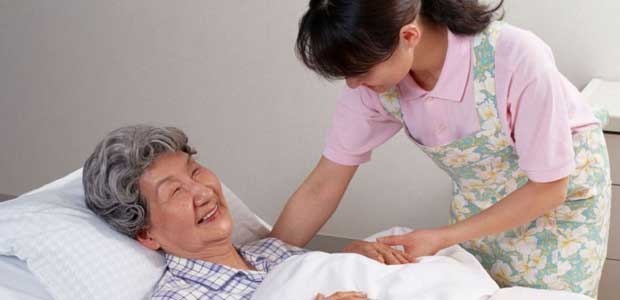Expert from Modern Cancer Hospital Guangzhou introduces common nursing methods for nasopharyngeal cancer and hopes thatpatients can pay attention to these methods.

1. Pay attention to prevention of cold, sphagitis, otitis media. Dental care including tooth extraction, tooth inserting, and dental filling are not allowed within 3 years after radiotherapy. Infections of nose, ear, eyes and oral cavity should be treated in time, like rinsing with antibiotic medicine and special solution.
2. Protect the skin region where was performed radiotherapy. Scratching, scrubbing with irritant liquids or exposing to the sun is not allowed. Patients should wear loose-fitting cotton clothes, and pay attention to the protection of the skin region.
3. Pay attention to patient’s mental nursing, release their fear and tension and help them to prepare for the long fighting with cancer. Moreover, patients should follow doctor’s advices and take treatments actively.
4. Nasopharyngeal cancer patients have to breathe through his mouth in that the tumor is located in the upper part of the nasal cavity, as a result, the water in patients’ oral cavity evaporate rapidly and patients’ saliva reduces. Radiotherapy may also reduce saliva. Therefore, patients should be given more water, dark plum or vitamin C to make sure that there is enough saliva for them.
5. Pay attention to functional training. Patients should do more exercises like turning the neck, clicking teeth, pouching the check, smiling, opening the mouth. Patients with radioactive pharyngitis should use gargle after meal and before sleeping.
6. To keep a good living habit. In the aspect of diet nursing, nasopharyngeal cancer patients should quit smoking and drinking; eat more foods with high protein and fiber instead of cold, hard and overheating food.
*Surgery, in addition to the appropriate chemotherapy and radiotherapy, are effective in treating early cancer, but certain patients in late stage of cancer may not be tolerate surgery well as they can be relatively weak. A combination of carefully planned minimally invasive therapy, chemotherapy or radiotherapy can effectively reduce the side effects and discomfort of treatment and may help patient get better efficacy.













 viber
viber